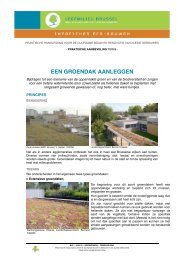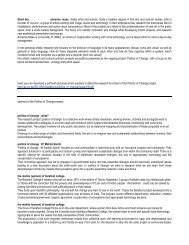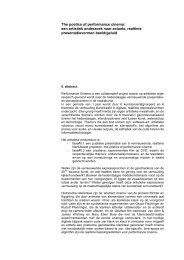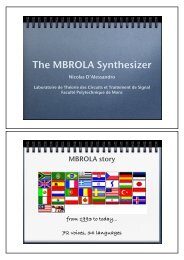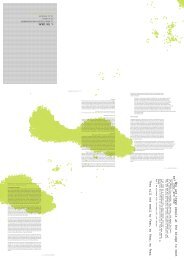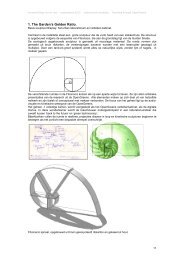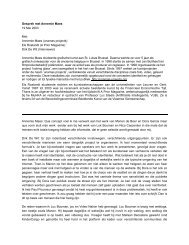MANIFESTO
MANIFESTO
MANIFESTO
You also want an ePaper? Increase the reach of your titles
YUMPU automatically turns print PDFs into web optimized ePapers that Google loves.
Concentration in processing and trade has treated differentiated flows of<br />
foodstuff. Export-oriented countries such as Argentina and Brazil export<br />
millions of tons of GM soybean cultivated under monocultures to Europe to feed<br />
intensively reared and highly subsidized animals. This contributes to soil erosion<br />
and social desertification of the countryside and allows the maintenance of a<br />
highly unhealthy and energy-inefficient meat-based diet.<br />
The trade of fresh fruit and vegetables from the South to the North results in<br />
a “virtual flow” of water from producing and exporting countries to importing<br />
countries. Water diversion from local food systems exacerbate conflict over<br />
resources and disparities. Over 70 percent of highly processed foods move from<br />
the South to the North, also affecting natural resources and increasing energy<br />
use in developing countries.<br />
Consumption Transitions<br />
Structural changes in production and distribution patterns accelerate change in<br />
diets and increase inequalities in consumption and welfare.<br />
Advertising promotes unhealthy changes in consumers’ tastes and behaviors.<br />
The availability of easily palatable food (based on strategic use of salt, sugar,<br />
and fats), and communication strategies contribute toward the shift away from<br />
local food systems to supermarket-based chains. This concentration of sourcing<br />
generates standardization and erosion of food variety. The nutritional transition<br />
based on meat, dairy and fats increase the incidence of food related diseases<br />
such as obesity, diabetes, and strokes. As the South adopts more western-style<br />
diets, such diseases are on the rise. Diet-related chronic disease is projected to<br />
be responsible for 52 percent of all deaths in China by 2025. In Sri Lanka, dietrelated<br />
chronic diseases currently account for 18.3 percent of all deaths and 10.2<br />
percent of public hospital expenditures. 10<br />
Such pre-cooked, processed foods are based on high energy consumption,<br />
including use of packaging materials, and have expanded at double the growth<br />
than conventional food sales. This food system increasingly replaces family<br />
activities and contributes to a loss of food knowledge, culture, and socialization.<br />
Relocalization as a Key to Transition<br />
Transition to a sustainable food system should be based on relocalization of<br />
production, trade, and consumption.<br />
First, relocalization should be symbolic: consumers should know where the<br />
products come from so that they can make an informed and responsible choice.




